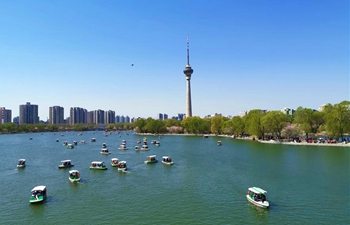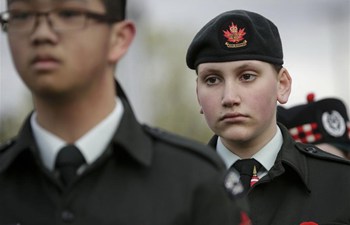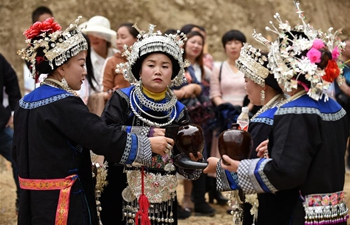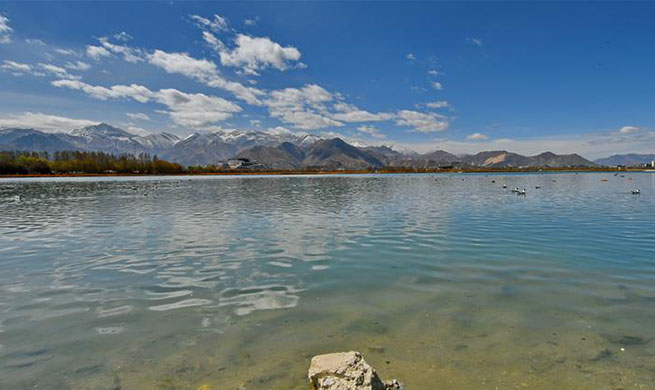RAMALLAH, April 8 (Xinhua) -- Palestinians are deeply concerned about the results of the Israeli parliamentary elections due on Tuesday amid what they see Israel's growing extremist attitudes against them, Palestinian observers said.
George Juqman, head of the Ramallah Institute for Democratic Studies, told Xinhua that the Palestinian public and even the leadership "feel great fear" in anticipation of the results of the Israeli elections.
"The election in Israel will take place amid a rivalry between the rightists in the light of the disappearance of the left wing.
"The election campaign included threats and serious and unprecedented risks on the Palestinian issue," he added.
Such fear grows amid the looming announcement of the U.S. Deal of the Century for the Palestinian-Israeli conflict and the expected pressure on the Palestinians, the Palestinian expert noted.
Jouqman believes the positions of the right-wing parties in Israel have signalled "the absence of a real political horizon that guarantees the establishment of a Palestinian state and the achievement of a comprehensive and just peace agreement."
"The right-wing parties in Israel have confirmed in their campaigns that they want to control all historical Palestine and prevent the establishment of a Palestinian state," he explained.
During his last leg of campaign before the elections, Israeli Prime Minister Benjamin Netanyahu announced his intention to extend Israeli sovereignty to the Jewish settlements in the West Bank and his categorical refusal to cancel them.
Meanwhile, Netanyahu's main rival Benny Gantz declared that he was not ready for Israel's retreat to the 1967 borders and would preserve the unity of Jerusalem as the capital of Israel.
Thus, Sadiq al-Shafei, a Ramallah-based political analyst, said there is "a Palestinian conviction that the Israeli elections will not result in any breakthrough in Palestinian national rights."
"All the forces and their competing electoral blocs in Israel are almost identical in their programs and attitudes toward the conflict with the Palestinian people and their rights," Shafei told Xinhua.
The Israeli elections are just conducted "between the forces of the right and the extreme right," he said.
The last round of peace negotiations between Palestinians and Israelis stalled in 2014 after nine months of U.S.-sponsored talks collapsed without reaching any agreement over the decades-long conflict.
Efforts to resume peace talks have been complicated by the current U.S. policies under President Donald Trump, especially after Trump announced his recognition of Jerusalem as the capital of Israel in December 2017.
Saeb Erekat, secretary of the Executive Committee of the Palestine Liberation Organization, recently warned that Israel's first step after elections would be the declaration of annexing the West Bank, in order to take advantage of the support of the U.S. government.
Akram Attallah, a writer and political analyst from the Gaza Strip, describes the electoral situation in Israel as "dismal" for the Palestinians, especially in the absence of political programs to solve the Palestinian issue during the campaigns.
The positions of the Israeli parties ahead of the elections showed clearly that "the page of political settlement and the two-state solution is over forever in Israel," Attallah told Xinhua.
Hani Habib, also a political analyst from Gaza, said Netanyahu revealed on the eve of elections three "nos" during his speech with Trump.
"No to talk about settlements under any deal, no to talk of limiting Israeli control of the West Bank and no division of Jerusalem," Habib said.















